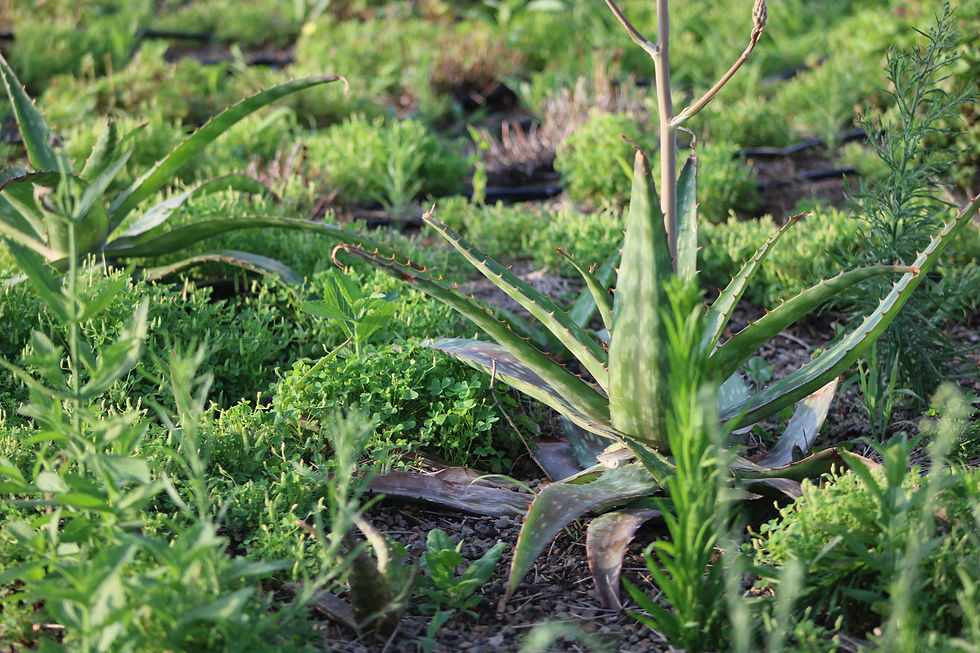Cilantro and all her visitors
- August Kind

- Apr 9, 2025
- 3 min read
The days in Houston, as of late, have been categorized by unseasonably cool morning and expectedly hot days. Our temperatures are walking their ways up into the 80s, which in a place that expects long, enduring months of 100+ degree days, that the land is beginning to flourish.
Everywhere you look, brightly colored, small and innocuous, flowers of all kinds are blushing under the attention of the sun.
At the farm, I am waiting for rain.
This part of the year is often home to showers, if anyone has heard the old saying, but it is easy to forget that rain, for us, comes before the storm of summer. Everyone who works in their gardens and farms is hurriedly preparing for the brute force of a Texas summer and so is the land. Now is the time for plantings and seedling. They grow accustomed to the long, hot days and walk along until the rains of May. Then the plants dance, rejoicing in the endless love between themselves and water. There are big and difficult things coming.
When the first 100 degree temperature day of June hits, we will not see the end of it until, likely, September. It is a silly and disorienting calendar if you are living by farming information coming from California or the East Coast. Nowhere prepares you for Texas, for Houston. This is a beautiful and bountiful land, despite what you may have been raised to believe.
Cilantro
Today, I am joined by our junior farmer and students from a local school that volunteer with us every Wednesday. We weave our way through bushes of tall, fragrant white flowers to pick the tender green berries of the cilantro.
We are never alone: between us float, buzz, and meander all number of insect relatives. They are called here, to the sharp smell of the cilantro blooms that mature in the sun's light and transform, with the pollinators help, into coriander. Among the chattering of teenage and a few adult humans sing honeybees, hover flies, and bee flies. I spot a red wasp.
When I stopped last week to speak with someone at the farm of the dainty but important flowers of the cilantro, we sat for a moment and observed. The plant closest to us sat heavy with four species of wasp, two bee, and three fly. The diversity, the resource gathering, the ample offerings stagger me, though I know of their technical benefit.

I learned in school, and through my work, that cilantro, when left to bloom, calls all number of pollinators and beneficial predators. These insects will come for the pollen and stay for the pests, which become another snack to them. Cilantro makes a terrific companion plant for any plant that struggles with aphids and other small, thin skinned pests. Farmers and gardeners of all walks of life will tell you that if you have plants, pests will come. And to think, if you have more plants, the predators will come.
I am grateful this week for the cilantro and her blooms, the nutrients her body gives us and the healing effects she has on our hearts and blood. For the bees and wasps and flies that come, and stay. For the gifts of protection and pollination that they give to us freely.


Comments